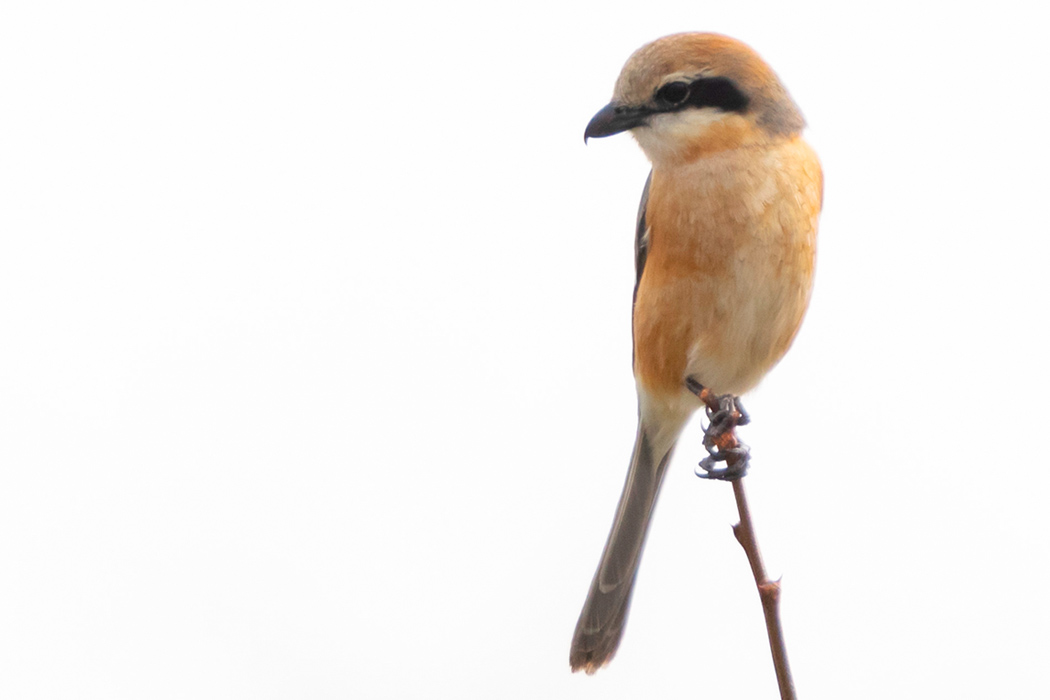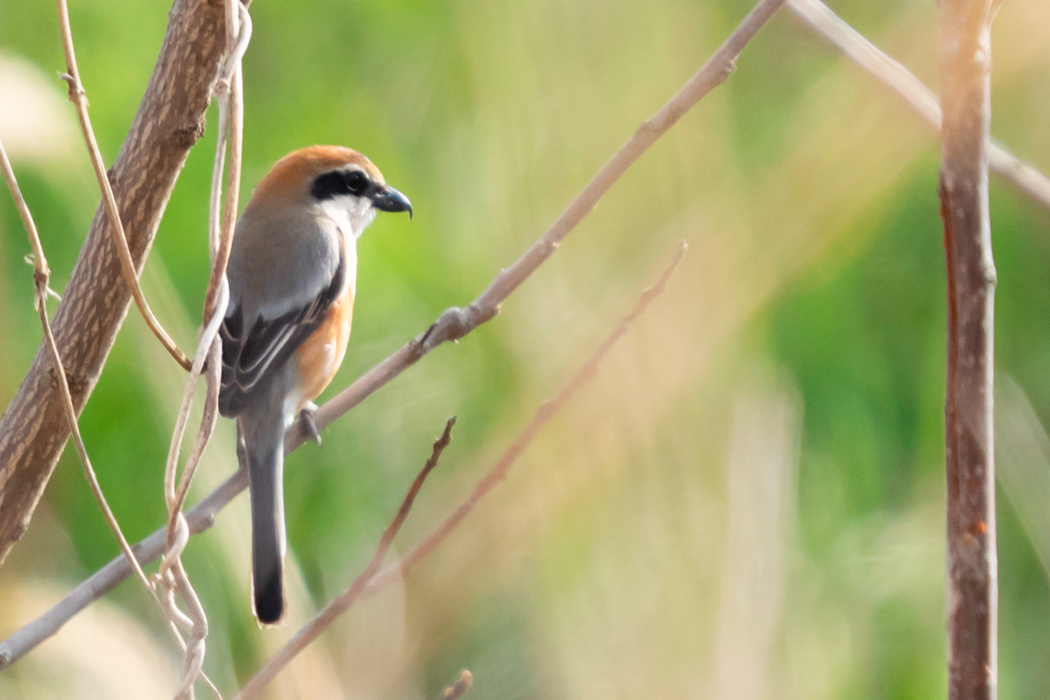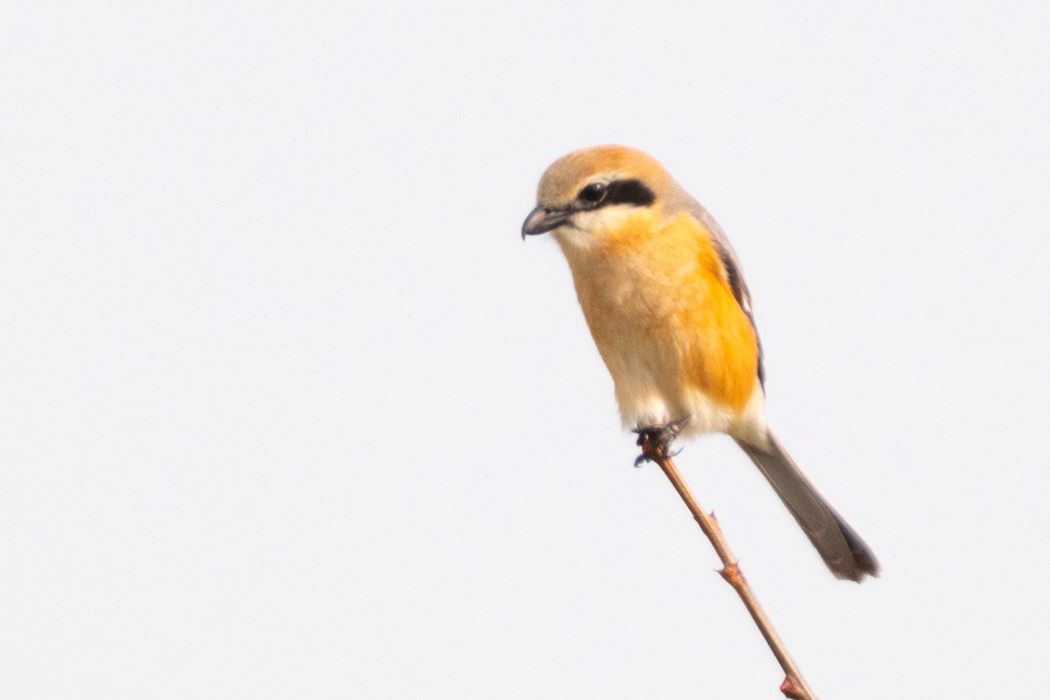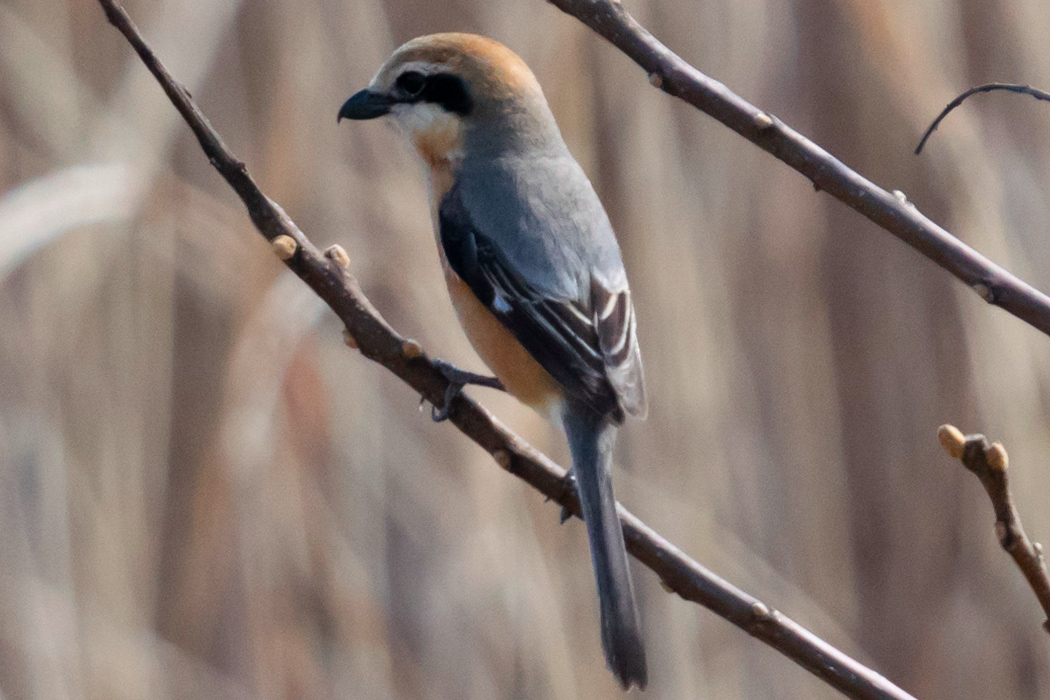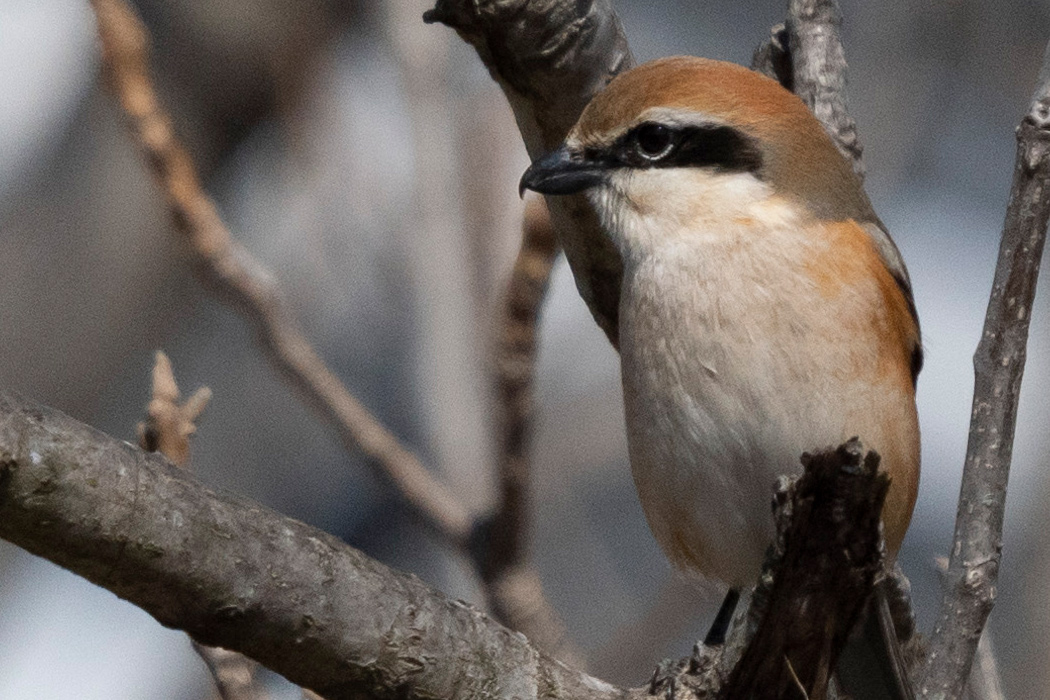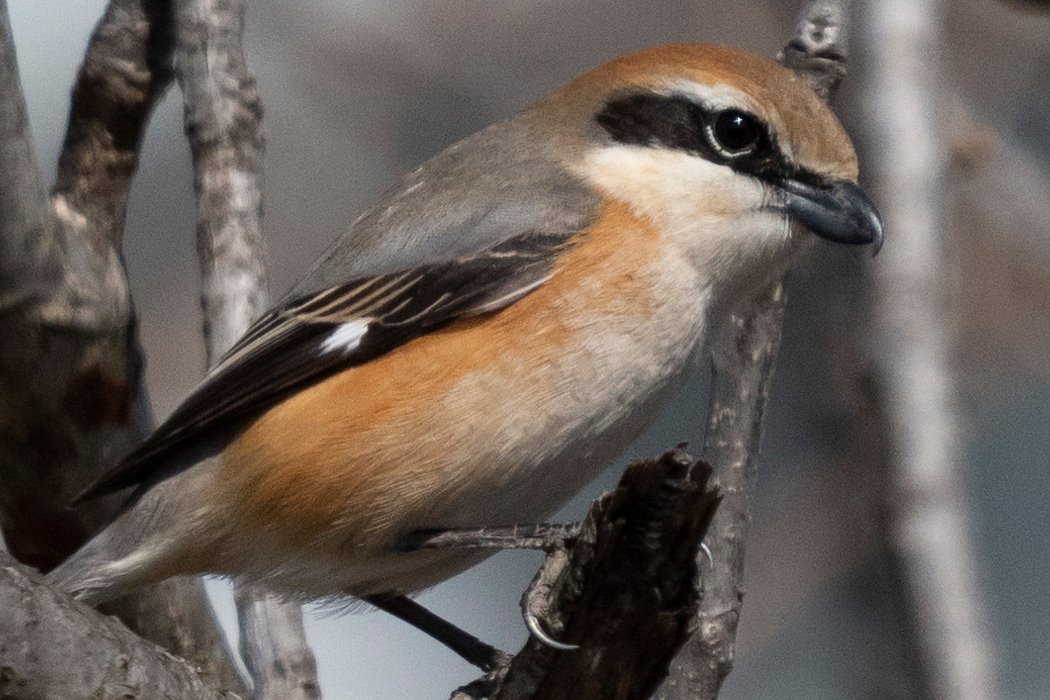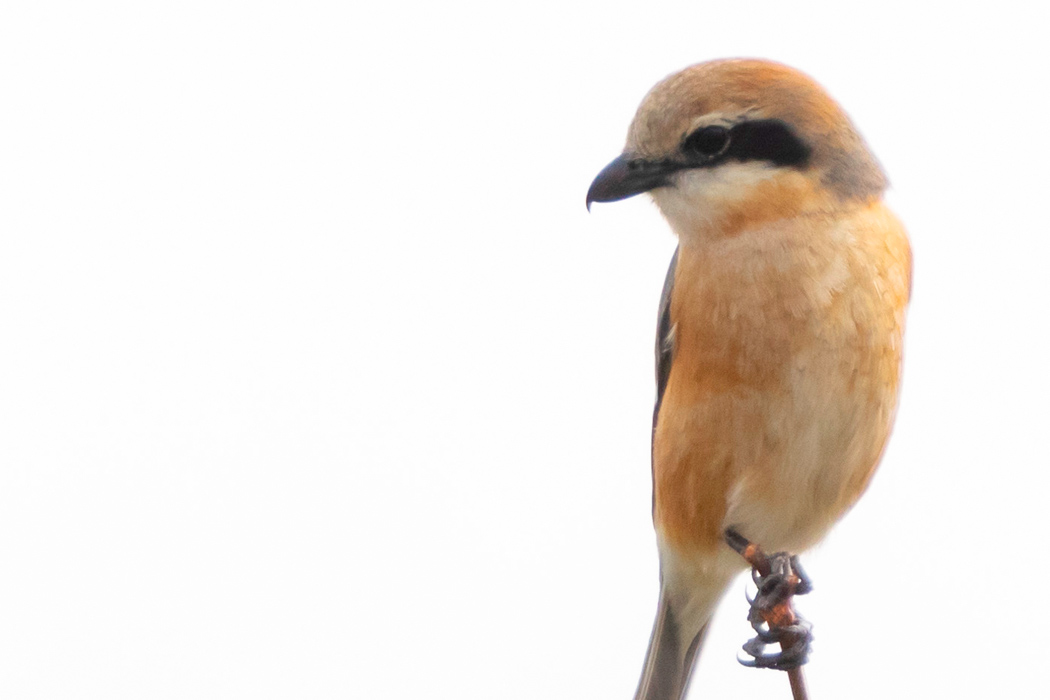
Bull-headed Shrike
Searches for prey from trees by wagging its tail.
| Scientific name | Lanius bucephalus |
| English name | Bull-headed Shrike |
| Japanese name | 百舌 |
| Classification | Aves |
| Classification details | Passeriformes Laniidae |
| Full length | 20cm |
| Distribution | Hokkaido, Honshu, Shikoku, Kyushu |
Characteristics
In kanji, it is written as ``百舌(Mozu)'', and as its name suggests, it can imitate the calls of various other birds such as the Chinese white-eye and the white-eye. They are brown overall, and males have a black eye line. The wings are gray with white stripes on the edges.
It likes to perch near the tip of a branch, and its tail hangs down in a circle.
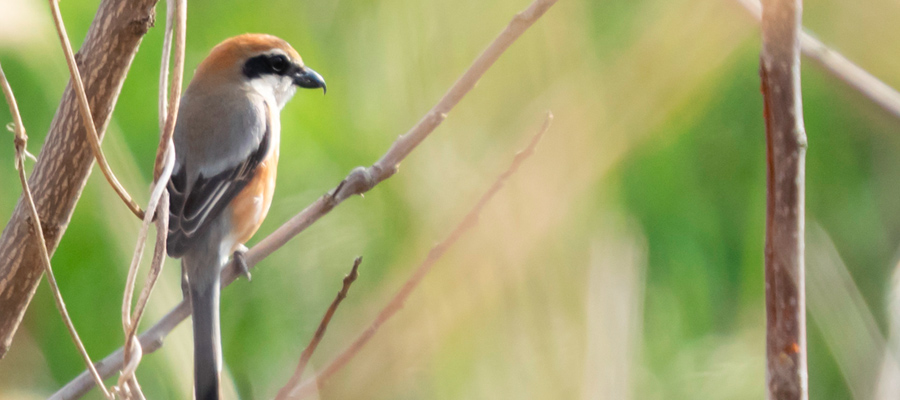
Ecology
They have a strong territorial awareness, and have a single territorial territory outside of the breeding season. It is an animal food that mainly eats insects and amphibians, searching for prey from the top of the tree and eating the captured prey on the branches.
It performs a behavior called 'hayanie' (early sacrifice) in which it stabs captured prey into autumn branches. We don't know exactly why they do this, but it seems to be a habit unique to shrikes eating in trees.
Habitat
It was perched on the tip of a tree branch on the riverbed of Asakawa, Hachioji City. It twirled its tail, looked around, and occasionally landed on the ground. It seems to like the top of trees, and when it moves, it only takes a moment to get down to the ground and jumps to a branch. The flying speed was not that fast, and it stopped after moving about 10 meters, and squealed with a unique cry.
Pictures
Introducing a picture of Bull-headed Shrike.
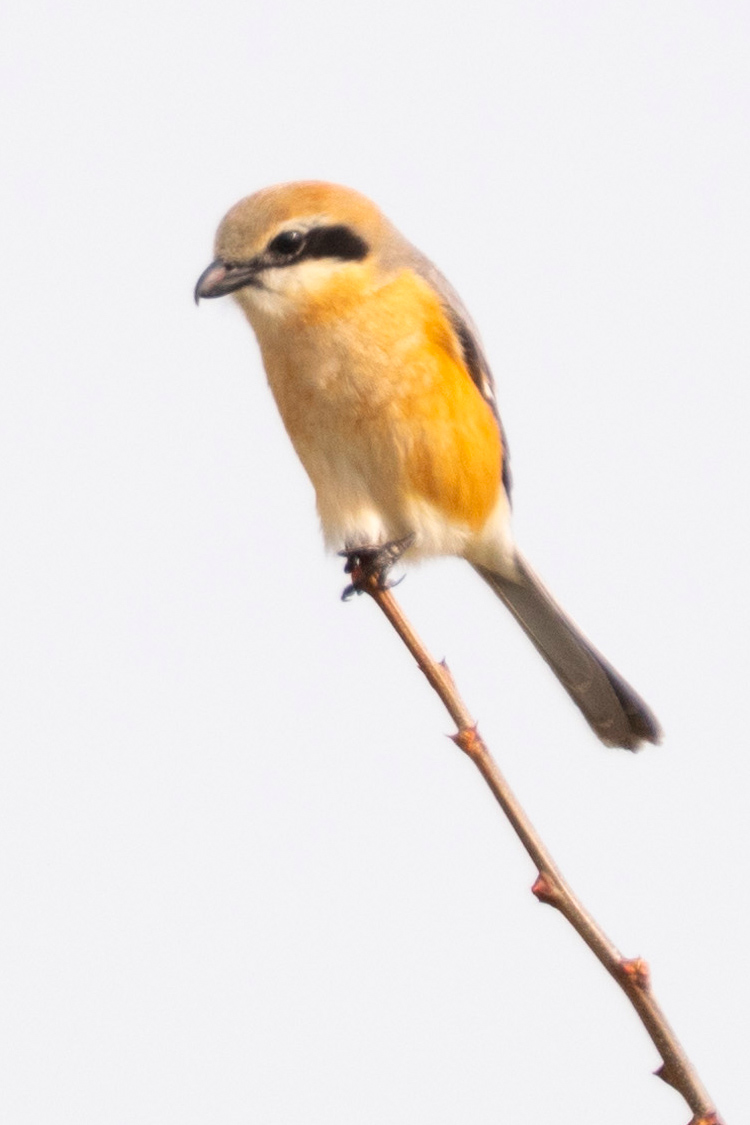
Picture book

Japanese Pygmy Woodpecker
A small woodpecker that you can meet up close.......ead more.
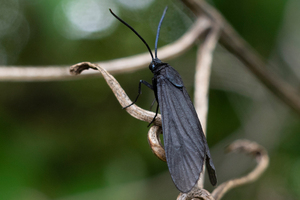
--
Its entire body is black, with slightly blue antennae.......ead more.
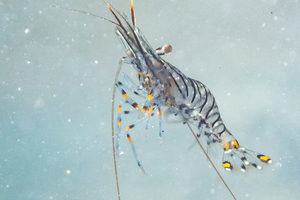
---
Glass-like body.......ead more.

Honshu pipefish
Caudal fin screaming.......ead more.

Japanese Wagtail
The contrast of black and white is strong.......ead more.
